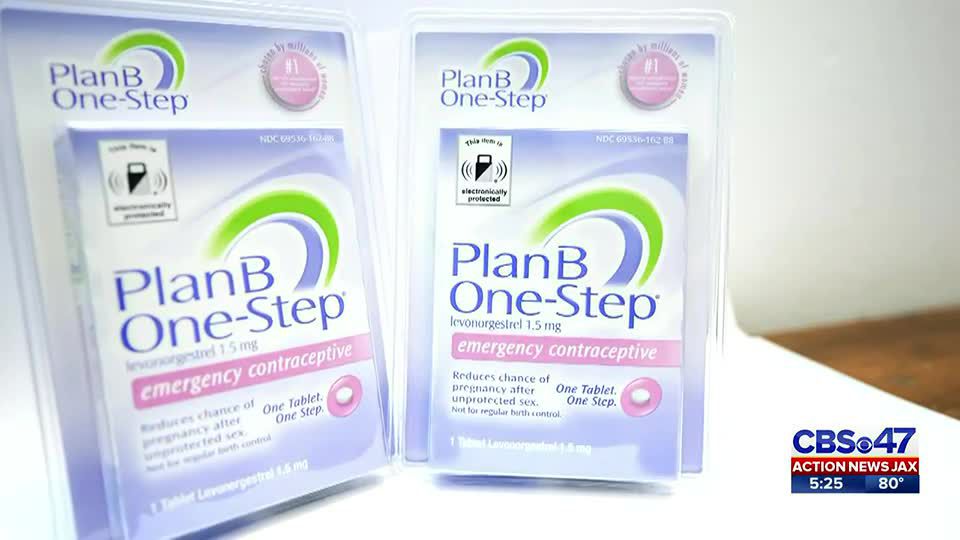Over-the-Counter Birth Control: Increased Access And Its Implications

Table of Contents
Potential Benefits of Over-the-Counter Birth Control
The potential advantages of making birth control readily available are numerous and impactful, particularly for improving access and empowering women's reproductive health.
Improved Access and Reduced Barriers
Over-the-counter birth control offers several key advantages in terms of access:
- Increased Convenience: Individuals, especially those in rural areas or facing financial constraints, would find it significantly easier to obtain contraception. The elimination of doctor's appointments and associated costs represents a major improvement in accessibility for many.
- Reduced Wait Times: Accessing birth control often involves scheduling appointments, potentially facing long wait times, and navigating complex healthcare systems. Over-the-counter availability drastically reduces these delays, allowing for immediate access to essential reproductive healthcare.
- Enhanced Privacy: Seeking birth control can be a personal and sensitive matter. Over-the-counter access provides individuals with greater privacy and control over their reproductive choices without the need for consultations or discussions with healthcare providers.
- Improved Adherence: Easier access to birth control can lead to improved adherence to medication regimens, ultimately increasing the effectiveness of contraception and reducing the risk of unintended pregnancies. This is crucial for the success of hormonal birth control methods.
Empowering Women's Reproductive Health
Making birth control readily available has profound implications for women's reproductive health:
- Greater Autonomy: Access to over-the-counter birth control empowers women to take control of their reproductive lives and make informed decisions about their bodies and futures. This autonomy is a fundamental aspect of reproductive freedom.
- Enhanced Family Planning: Easy access to effective contraception allows for better family planning, enabling individuals and couples to make conscious choices about when and if to have children. This can significantly contribute to reducing unintended pregnancies.
- Reduced Unintended Pregnancies and Abortions: Increased access to birth control is strongly correlated with lower rates of unintended pregnancies and subsequent abortions. This has significant implications for public health and individual well-being.
- Increased Self-Management: Over-the-counter birth control promotes self-management of reproductive health, encouraging individuals to actively engage in their healthcare and make informed decisions about their contraception.
Potential Risks and Concerns of Over-the-Counter Birth Control
While the benefits of over-the-counter birth control are significant, potential risks and concerns must be carefully considered.
Safety Concerns and Misuse
Several safety concerns are associated with wider access to birth control:
- Incorrect Usage: Without proper medical guidance, individuals may misuse or incorrectly use hormonal birth control, leading to reduced effectiveness or adverse health consequences. This is a major concern that needs addressing.
- Inappropriate Method Selection: Choosing the right birth control method is crucial and requires individualized assessment. Without professional consultation, individuals might select a method unsuitable for their health condition or lifestyle.
- Medication Interactions: Over-the-counter birth control can interact negatively with other medications. Lack of professional monitoring could lead to unforeseen health issues.
- Increased Reliance on Less Effective Methods: The increased accessibility of over-the-counter options might encourage the use of less effective methods, ultimately increasing the risk of unintended pregnancies.
Public Health Implications
The wider availability of over-the-counter birth control has several important public health implications:
- Need for Education: Comprehensive educational campaigns are crucial to ensure individuals understand how to use over-the-counter birth control safely and effectively. Misinformation needs to be combated with accurate, accessible resources.
- Increased Healthcare Costs: Improper usage may lead to increased healthcare costs due to the management of complications and adverse effects. A proactive approach to education is key to minimizing these costs.
- Regulatory Oversight: Robust regulatory oversight is necessary to ensure the quality, safety, and efficacy of over-the-counter birth control products. This will safeguard the health and well-being of users.
- Addressing Health Equity: Efforts must be made to ensure equitable access to over-the-counter birth control for all socioeconomic groups, preventing disparities in access to this crucial form of healthcare.
The Role of Education and Public Health Initiatives
Addressing the potential risks associated with over-the-counter birth control requires comprehensive educational programs and targeted public health initiatives.
Comprehensive Education Programs
Effective education is paramount:
- Informative Resources: Developing accessible and user-friendly educational materials about different birth control methods, their efficacy, potential side effects, and proper usage is vital.
- Public Health Campaigns: Public health campaigns can effectively address misconceptions and provide accurate information about over-the-counter birth control, improving informed decision-making.
- Healthcare Professional Training: Training healthcare professionals to effectively counsel individuals on appropriate birth control choices is crucial for ensuring safe and responsible use.
Addressing Health Disparities
Equitable access is crucial:
- Equitable Access: Efforts must ensure that all socioeconomic groups and communities have equal access to information and affordable birth control methods.
- Targeted Outreach: Outreach programs specifically targeting underserved populations are needed to address existing health disparities and ensure equitable access to over-the-counter birth control.
- Culturally Sensitive Education: Providing language-accessible materials and culturally sensitive education will ensure that information is understood and utilized effectively by all populations.
Conclusion
The shift towards over-the-counter birth control presents both exciting opportunities and significant challenges. While increased access could empower individuals and dramatically improve reproductive health outcomes, addressing potential safety risks and public health implications is crucial. Implementing comprehensive education programs, addressing health disparities, and ensuring robust regulatory oversight are vital to maximizing the benefits and minimizing the risks of making birth control readily available over-the-counter. To truly harness the potential of over-the-counter birth control, we need a proactive approach that prioritizes both individual autonomy and public health. Learn more about the ongoing discussion surrounding over-the-counter birth control and how it might affect you. Make informed choices about your reproductive health and explore the latest information on over-the-counter birth control options.

Featured Posts
-
 Papal Funeral Seating Plans Protocol And Practicalities
Apr 30, 2025
Papal Funeral Seating Plans Protocol And Practicalities
Apr 30, 2025 -
 Pro Bono Agreement Prevents Sanctions Against Fourth Firm Working With Trump
Apr 30, 2025
Pro Bono Agreement Prevents Sanctions Against Fourth Firm Working With Trump
Apr 30, 2025 -
 Winning Series Game Aaron Judge And Paul Goldschmidts Impact
Apr 30, 2025
Winning Series Game Aaron Judge And Paul Goldschmidts Impact
Apr 30, 2025 -
 Gia Tieu Hom Nay Cap Nhat Tin Hieu Tich Cuc Cho Nong Dan
Apr 30, 2025
Gia Tieu Hom Nay Cap Nhat Tin Hieu Tich Cuc Cho Nong Dan
Apr 30, 2025 -
 Dagskrain Meistaradeildin Og Nba Stjoernur I Bonusdeildinni
Apr 30, 2025
Dagskrain Meistaradeildin Og Nba Stjoernur I Bonusdeildinni
Apr 30, 2025
